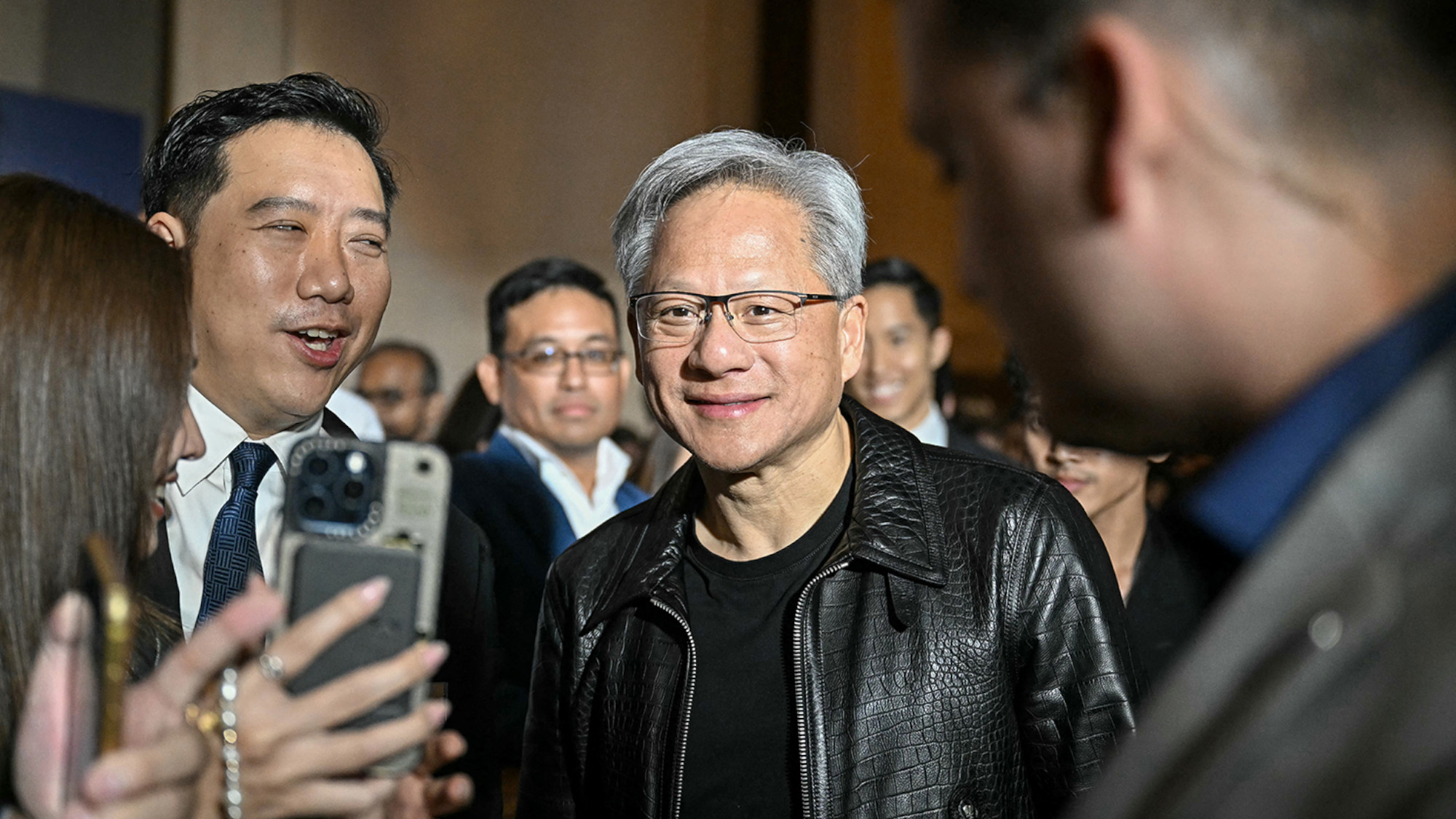Book reviews: 'The Thinking Machine: Jensen Huang, Nvidia, and the World's Most Coveted Microchip' and 'Who Is Government? The Untold Story of Public Service'
The tech titan behind Nvidia's success and the secret stories of government workers

A free daily email with the biggest news stories of the day – and the best features from TheWeek.com
You are now subscribed
Your newsletter sign-up was successful
'The Thinking Machine: Jensen Huang, Nvidia, and the World’s Most Coveted Microchip' by Stephen Witt
The Thinking Machine is the biography of a tech titan, but it's also "something more interesting and revealing," said James Surowiecki in The Atlantic. Nvidia co-founder Jensen Huang has been the outfit's CEO from 1993 through its explosive rise to its current standing as the world's third most valuable company, and "to be sure, Huang himself was central to Nvidia's success." But author Stephen Witt makes clear that Nvidia wouldn't be building the chips that are powering the AI revolution absent the culture and economy established in Silicon Valley decades ago. Nvidia's breakthroughs have been built on the free movement of labor within the industry, the talent of immigrants, research funded by universities and the federal government, and a board willing to forego instant rewards for a long-term payoff. Finally, when opportunities have crossed Huang's sights, "he's made the bold moves."
"Huang's biography, at this point, is well-known," said Marc Levinson in The Wall Street Journal. Born in Taiwan in 1963, he arrived in the U.S. at 10, at first landing at a reform school in Kentucky that a family member mistook for an elite prep school. He spent most of the rest of his youth in Oregon, moving to Silicon Valley after college and, after picking up a master's degree, co-founding Nvidia to build chips for PC gaming. "One virtue of The Thinking Machine is that it is not entirely admiring of Huang," detailing how some early bets went disastrously wrong and how quick Huang has been to blame others. But Huang gambled wisely on parallel processing, giving his gaming chips an edge, said The Economist. And in 2013, he went all in on the idea of neural networks before anyone knew that they'd be crucial to AI's leap. His famed temper, meanwhile, "co-exists with a tenderness recalled by current and former subordinates." As a boss, he's both liked and admired.
Because the book's narrative ends in mid-2024, it misses some key developments, said Katie Notopoulos in The New York Times. In late January, Nvidia's stock price plummeted on news that DeepSeek, a Chinese startup, had developed a potent new AI reasoning model using a fraction of the Nvidia chips required by rival systems. But Nvidia remains the market leader, and The Thinking Machine remains "a lively biography" that makes the technology of AI understandable and does "a decent job" of wringing drama from the efforts of Nvidia's engineers to achieve their market-changing breakthroughs. Late in the book, when Witt asks Huang to discuss the dangers of AI, Huang doesn't just refuse, he explodes in anger. To some extent, this pioneer's lack of worry about runaway AI "should be comforting." Mostly, though, it's not.
The Week
Escape your echo chamber. Get the facts behind the news, plus analysis from multiple perspectives.

Sign up for The Week's Free Newsletters
From our morning news briefing to a weekly Good News Newsletter, get the best of The Week delivered directly to your inbox.
From our morning news briefing to a weekly Good News Newsletter, get the best of The Week delivered directly to your inbox.
'Who Is Government? The Untold Story of Public Service' edited by Michael Lewis
"Government workers are saddled with a stereotype of being faceless, lazy, corrupt paper pushers," said Janet Hook in Washington Monthly. So at a moment when President Trump and his billionaire surrogate Elon Musk are slashing government jobs while bashing the very people they're firing, it's a pleasure to discover that this recent best-seller about several formerly faceless federal employees is also "a surprisingly engaging read." Michael Lewis, the author of Moneyball, The Blind Side, and other nonfiction best-sellers, persuaded several other talented writers to contribute profiles of individual workers providing important public services. While the book "sometimes smacks of puffery and boosterism," the spotlighted subjects are good people performing good works, and it's clear that only government can support such endeavors.
"Each chapter has its own distinct flavor," said Dorian Lynskey in The Guardian. Novelist Geraldine Brooks' profile of an IRS cybercrime specialist who has thwarted drug dealers and pedophiles "could be a movie pitch." Dave Eggers introduces the scientists who build the satellites and rovers looking for evidence of life on other planets. Lewis himself provides two "gripping" entries, one about a former coal miner who has radically improved mine safety and another about an epidemiologist whose research on rare diseases saved the life of a girl whose brain was being eaten by an amoeba. Given the recklessness with which Musk has operated, "it would not be surprising to learn that some of the people interviewed here have already been laid off." For all of them, though, "public service is a higher calling."
Sometimes, government also performs better than the private sector could, said Garrett M. Graff in The Washington Post. The New Yorker's Casey Cep profiles Ronald Walters, who as the official in charge of the nation's veterans cemeteries, runs a service-oriented operation that scores higher on customer satisfaction surveys than any U.S. corporation. Elsewhere, "the book shows, in specific ways, how much safer and more secure daily life is today than it was even a generation or two ago." And that's all thanks to a government workforce that's accused of being bloated but hasn't grown during that same span of time.
A free daily email with the biggest news stories of the day – and the best features from TheWeek.com